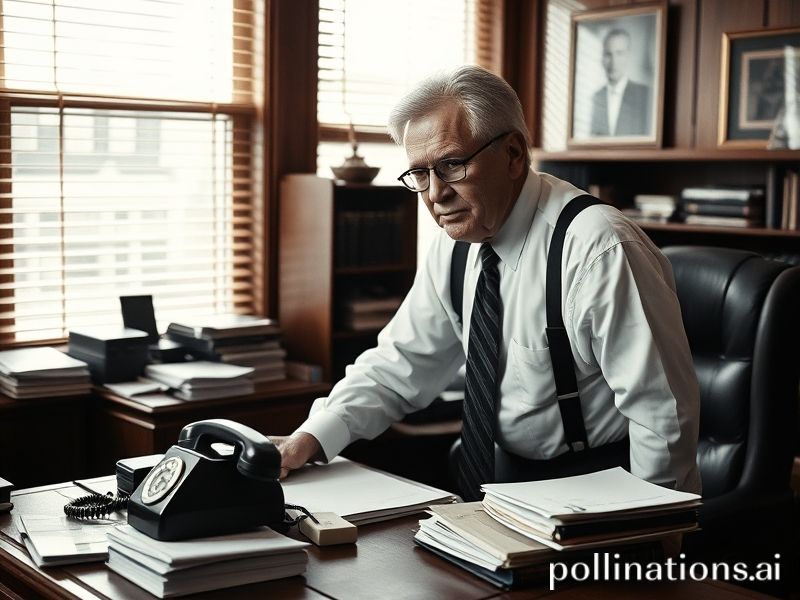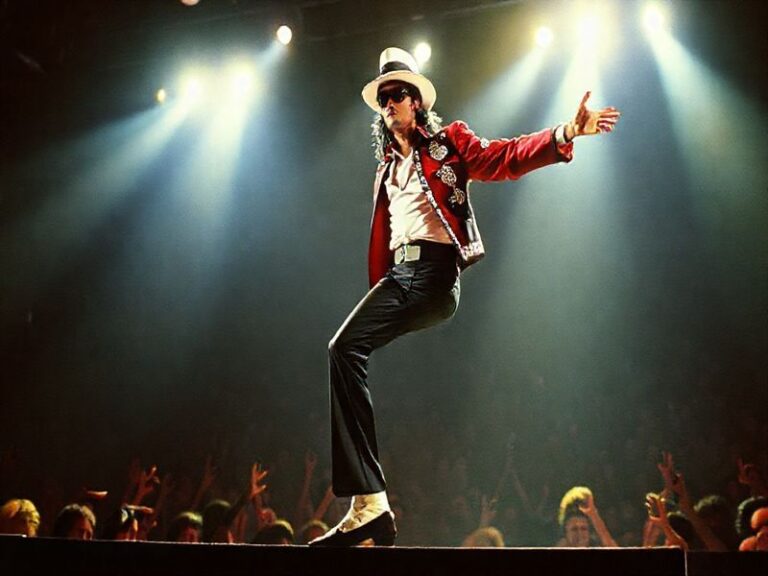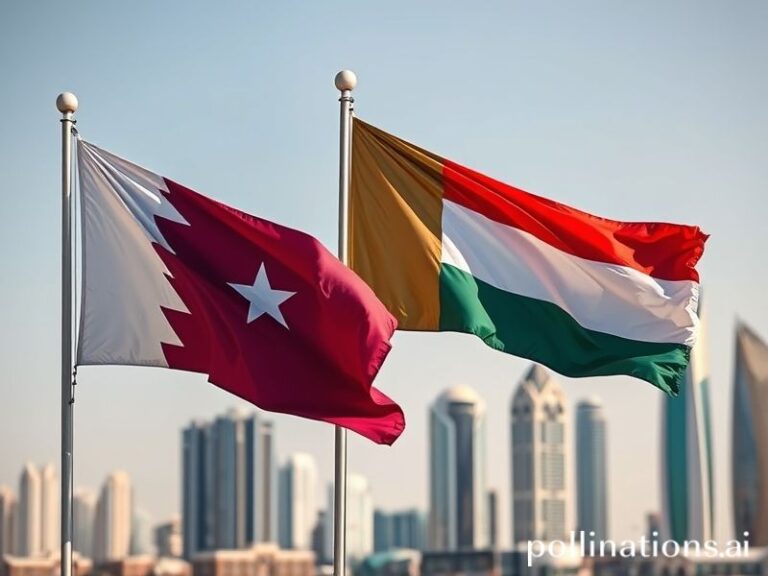Bob Barnett: The Trademark Lawyer Who Accidentally United the World in Panic
Bob Barnett’s Name Travels Faster Than He Does
By Dave’s Locker Foreign Correspondent (currently self-exiled in a Lisbon café that still allows indoor smoking)
If you blinked last Tuesday, you probably missed the moment Bob Barnett became a global Rorschach test. One minute he was an unremarkable trademark lawyer in Washington; the next, his surname was trending in fourteen languages, including three that Google Translate still files under “probably a typo.” From Lagos to Lahore, armchair pundits now invoke “Barnett” the way medieval peasants once muttered “pestilence” or “tax season.” It’s the kind of overnight fame that makes you suspect the universe has a twisted sense of timing—and a 5G connection.
The inciting incident was almost insultingly small: Barnett’s firm quietly registered the phrase “World Unity Day” on behalf of an unnamed tech consortium. Within hours, conspiracy Telegram channels from Novosibirsk to Novena were insisting the filing was proof of a “shadow calendar” designed to erase national holidays and replace them with one synchronized Amazon Prime delivery day. By sundown, #BarnettClause was the top hashtag in Jakarta, beating both the local pop idol’s wedding and the president’s latest infrastructure promise—no small feat in a country where traffic is both a lifestyle and a blood sport.
The global reaction tells us less about Bob than about everyone else. In Germany, earnest talk-show hosts dissected the filing’s footnotes for hidden Illuminati acronyms; meanwhile, Argentine Twitter memed Barnett’s LinkedIn headshot onto the body of a Bond villain stroking a USB stick instead of a cat. The French, ever the pessimistic romantics, declared the affair “tragiquement banal” and returned to their cigarette-gnawing strike schedule. Only the Swiss, bless their chocolate-armored neutrality, asked the truly pertinent question: “What does this do to our timing on the next luxury-watch drop?”
Zoom out and the Barnett brouhaha is a master class in twenty-first-century geopolitical neurosis. Every region projected its own nightmare onto a single lawyer’s paperwork. The United States worried about corporate overreach; China saw a potential lever for social-credit rebranding; the Nordics fretted over whether “World Unity Day” would include mandatory hygge workshops. In essence, Barnett became the whiteboard on which the planet scribbles its collective anxiety after three years of pandemics, supply-chain collapses, and that one billionaire who won’t stop launching cars into orbit.
What’s deliciously ironic is that Barnett himself has never left the Eastern Time Zone. Colleagues describe him as the sort of man who color-codes his vacation itineraries and once sent back a Caesar salad because the croutons were “insufficiently symmetrical.” He reportedly learned of his international notoriety when his teenage niece in Toronto DM’d him a TikTok soundtracked by a K-pop anthem with the caption, “Uncle Bob, why are you trending with a dancing radish emoji?” Sources close to Barnett say he responded the way any self-respecting Beltway attorney would: by scheduling a 7 a.m. conference call titled “Global Narrative Containment Strategy” and ordering gluten-free bagels for everyone.
The episode also highlights the brittle hilarity of our information architecture. A single PDF, filed in a language only lawyers and masochists voluntarily read, ricocheted through undersea cables and emerged on the other side of the planet as gospel, graffiti, and grist for state-sponsored bot farms. If you ever doubted that data is the new oil, consider how Barnett’s innocuous trademark just greased the gears of a thousand content machines, each one emitting more smoke than a Soviet Lada. The carbon footprint of collective paranoia may yet finish off the glaciers faster than the cruise ships we send to watch them melt.
So what now? The consortium, whoever they are, has doubled down, announcing a “grass-roots rollout” of World Unity Day merchandise—biodegradable wristbands made in six non-union factories. Meanwhile, Barnett has hired extra security after receiving a politely worded death threat from a separatist knitting circle in Shetland. And in the darker corners of the internet, someone is already minting BarnettCoin, a cryptocurrency whose white paper is just the word “unity” repeated 88 times followed by a winking emoji.
In the end, the Barnett Affair is a cautionary tale about the speed at which a name can metastasize into myth. It reminds us that in the age of fiber-optic folklore, the distance between anonymity and infamy is roughly the length of a trademark application—and that the planet’s most valuable export is no longer soybeans or semiconductors, but sheer, unfiltered dread. Bob Barnett didn’t set out to unite the world; he merely reminded it how much it enjoys being terrified together. That, dear readers, may be the closest thing to global unity we’ll ever achieve.







